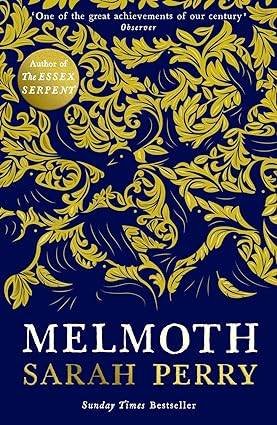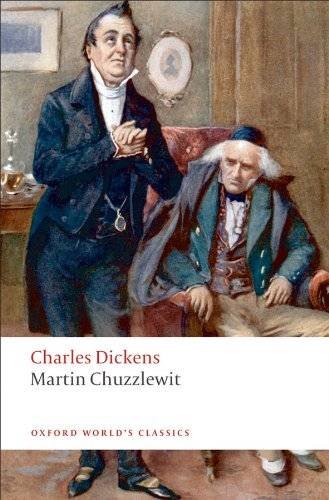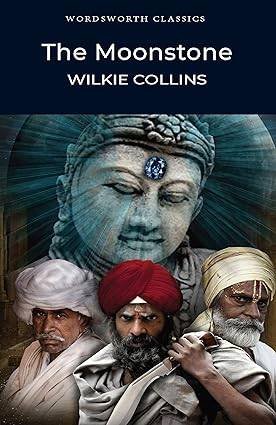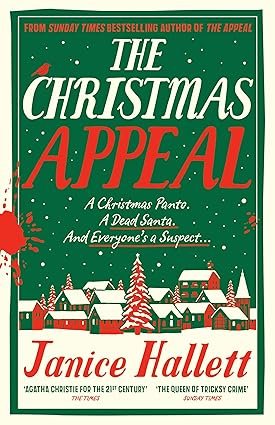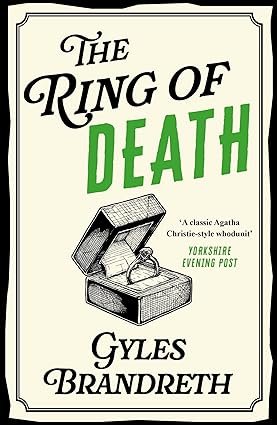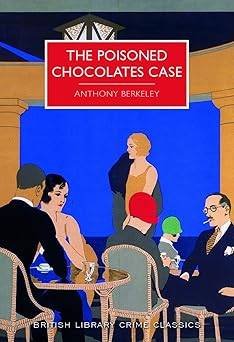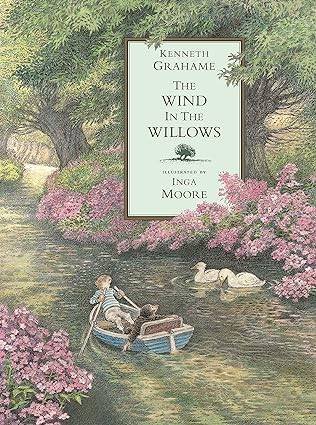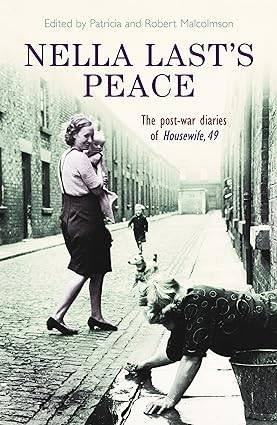Home » Book Reviews » Sarah Perry » Melmoth by Sarah Perry
Possible spoilers ahead
The book sounds so wonderfully mysterious from the blurb on the back, with a strange manuscript being found warning about a figure who hunts and haunts people, and a sense that people are being watched and followed. The main character, Helen, in Prague, thinks this figure, Melmoth, is just fantasy but then begins to change her mind. Grab your copy and let’s read it together!
I found the book really gripping to read and hard to put down, but also quite tough to read with the details of how people had suffered, from burnings at the stake, to concentration camps, to Nazi retaliation on a village, to someone being attacked with acid, etc. Definitely not designed for quiet relaxing bedtime reading! But it certainly was very gripping and I could have quite easily sat there all day reading it! The sense of unease that Helen felt just kept drawing me on to the next chapter and the next chapter to see what was going to happen, especially spooky bits like the hints of Helen feeling someone’s eyes at the window and her being unwilling to look. I was a bit surprised at how readily Helen seemed to fall under the spell of the Melmoth tale, given that we read the same Hoffman document as she did, but perhaps her holding the original document in her hands was more powerful. And I was quite absorbed with wondering what Helen had done for her to have to pay penance for.
I found it a very clever and powerful technique by the author to suddenly involve and draw the reader into the story, to put them there in the scene, and to make us feel that we had a part to play in it and could possibly influence the outcome if we were so inclined. And it was also quite chillingly done! Some examples that particularly resonated with me were when Helen was reluctant to look out of the window and the author said to the reader ‘And since she will not look, you must…’, and again, ‘Don’t you think it might be kind to take Helen Franklin by the arm and guide her back within the library walls?’, and particularly chilling, ‘For if you are a diligent witness you might see, concealed in the courtyard which Helen is now leaving, a figure dressed in black, patiently waiting, patiently waiting, patiently biding its time’.
And obviously I had so many questions about Melmoth, soooo many questions! I was mostly puzzled throughout the book, at whether Melmoth was a good or bad figure, and just where Melmoth sat between God and the Devil, as both are supposed to watch and judge. Melmoth said she was not an agent of the Devil, but she also seemed to not be an agent of God as she said that the love of God ‘is a dear price such as will leave you a debtor’. Was she a devil-like figure as she tempted people to follow her which prevented them from having the chance to atone for their sin and do good deeds, so she tempted them from the right path? Or was she a god-like figure as she ensured there were plenty of people in the world doing good and trying to right wrongs (she just goes about this in a kind of roundabout way!)? Did she encourage good or bad behaviours in others? And I was interested in Helen voicing the thought that Melmoth caused her to do what she did, so was that Melmoth’s purpose, to encourage people to do bad things if they don’t have sufficient conscience to resist? I also wondered at the level of power Melmoth had, as she said that she was ‘naught but a poor woman, lonely as you are lonely’ which makes her sound quite powerless, but she didn’t really seem powerless. But she certainly is intimidating, particularly when she said ‘Ah, but you do know me and have always known me, for it was I who watched when you did what you ought not to do, and I who knew when you thought what you ought not to have thought, and it is I alone who loves you in all that is most secret and most sinful in your soul’, eeek! And I did wonder why Melmoth came to people like Josef instead of to people like Hitler who have done even worse things? Is it because she felt that there was a chance they could change their path, so did she appear to people who were likely to feel regret and to want to atone, so therefore not bothering with people like Hitler who wouldn’t want to atone? And was she urging them to avoid doing worse things, or actually to do worse things? And by choosing to follow her, did this mean that the person then saw all the bad in the world, rather than actually walking with her? And if this was the case, then was her aim to try and make the person rectify the injustices and cruelty and sadness? So again (and I frequently came back to this question!), was Melmoth actually a good person trying to bring about good? I was also intrigued how the person (Hoffman, then Karel, etc) feared Melmoth coming but then also longed for her to come. And Josef and Helen seemed to have been seeing Melmoth for most of their lives, so did they not realise what she was until they learnt about her, and then looked back at their lives and realised? Or did they learn about her and then look back on their lives and imagined she was there, maybe like someone they could conveniently blame for the route their lives had taken and the decisions and choices they’d made, so perhaps it was easy to blame Melmoth for tempting them along the wrong path and for the sins they committed rather than blaming themselves? Or did they look back on their lives and choices with the wiser eyes that Melmoth gave them, so she therefore then appeared in their reminisces? I began to feel that Melmoth came to people without hope, but then that seemed to be taking advantage of people already troubled and suffering, so I revised my view of that as it didn’t quite seem to fit right. But I did struggle with trying to find some kind of pattern or rule about who she chose to appear to, and why, and how long after a person’s sin she appeared to them (as she appeared to Alice and Hoffman very quickly after their sins, but it was years after Helen’s sin that she appeared to her, I think Arnel was in jail for about 19 years? But then again, had she appeared to Helen earlier but Helen hadn’t realised this, arrrgh!). And I also struggled with the possible criteria that Melmoth used to determine a ‘sin’, as Hoffman’s and Helen’s sins seemed large as they effectively stole people’s lives, but I couldn’t really see that Alice committed a sin at all as she just steadfastly stuck to her religious beliefs. I know this is probably my need for order (!), but I couldn’t help feeling that Perry seemed not to have devised a set of ‘rules’ for Melmoth!
I tried to look at each person who Melmoth dealt with, in order to try and find answers. There seemed to be two main kinds of people that she came to, those who were guilty of doing wrong (and maybe needed to pay penance?) like Josef and Helen, and those who were in the pit of despair and hopelessness and about to die like Alice and Rosa. But why pick on people like Alice and Rosa? I guess she let them live, but it’s a life of suffering, which seems unfair when they’ve already suffered so much. Helen’s sin was that she brought about the death of Rosa (a woman in terrible and seemingly untreatable pain as acid had been thrown at her) and that she allowed her boyfriend Arnel to take the blame for Rosa’s death (as he supplied the painkillers in his job as a pharmacy assistant), so I am guessing Helen’s real sin was not admitting to what she’d done and letting Arnel be punished for it, rather than the sin being that she killed Rosa. Melmoth appearing to Josef seemed to make him do good and to save Novak, whereas it seemed to be implied that if Josef had gone with Melmoth then Novak would be killed. Melmoth seemed to appear to Karel but then not take him, so did he imagine her coming, or did she actually come for Thea instead, or was Karel actually on a mission chosen by Melmoth (helping immigrants entering England) without him realising it? And The Nameless (a Turk who signed papers ensuring the transportation of immigrant Armenian women and men and children who were subsequently killed, and then he found out that he himself was really an Armenian), his case confuses me as he didn’t sign those papers with malice, he perhaps conveniently accepted things at face value (such as they’d be happier there) rather than questioning things that may have given uncomfortable answers, but he didn’t orchestrate the transportation so why was he punished? Or were there three types of people that Melmoth appeared to, the third being a storyteller, as Anna told The Nameless’ story and she saw a Melmoth-like figure, and Sir David told Alice’s story and he also saw a Melmoth-like figure?
The book ends with Melmoth appearing to Helen but she rejects the invitation to follow Melmoth. So did she instead stay with Arnel and care for him (as Arnel had found her after he was released from many many years of suffering in jail), and so by rejecting Melmoth, Helen was then doing good and had the chance to atone for what she’d done wrong? And does this mean that Karel had also rejected Melmoth’s invitation, which allowed him to do good by helping immigrants? But why did those people who rejected Melmoth then long for her (like Hoffman?), were they fed up with constantly trying to atone?
And spookily and intriguingly, at the end of the book Melmoth seems to speak directly to the reader saying she sees our secrets, so is this meant to imply that this book’s purpose is to direct us on a good path and to right wrongs? So is Perry our Melmoth?! Is she actually one of Melmoth’s storytellers?!
There were lovely descriptions of Prague in the book, it sounds like a gorgeous place, the city of a thousand spires. I’ve never been to Prague, but now would love to go. The ‘stumbling stones’ in Prague which mark the place where someone was taken to the camps, sound very powerful to see. And I wonder if the story works better with being set in a place that feels quite different to England and a place with lots of history and turmoil, a bit like Dracula being set in Transylvania, it just adds to the feeling of foreignness and that anything could happen, there is no comfort from the familiar English scenes. The book reminds me a bit of The Historian too, with the research into a myth-like figure that they’re unsure whether exists or not, with lots of historical texts and legend passed down through the ages, and dealing with a creature that has survived for centuries, and again being set somewhere quite different to England.
I honestly struggled to believe what happened at the town of Lidice, I could not comprehend how people could do that, I thought it was untrue until I looked on Wikipedia and saw it was true. The whole village being completely destroyed by the Nazis as retaliation, all the men being shot, the women and children taken to camps, and women even being forced to undergo abortions, even remains of people buried in the graveyard being dug up, all through retaliation for the death of a German officer. It’s almost something I now wish I didn’t know as it’s so hard to have it in my mind, but then it feels important that I do know about it.
And I was interested to hear about the original book which this is based on, Melmoth the Wanderer by Charles Maturin, and I was relieved that Perry didn’t try to re-write this original book, and I like that Karel referred to the original book as a source, I thought that was a nice touch.
I did really rate this book, it is very memorable and one that I feel will stay with me. It felt like a powerful read, and I learnt about lots of wrongs in the world and it made me question how I felt about certain things. I also loved the gothic mysterious feel to it, and I loved that the story was often told through letters and journals, and I liked the unusual narrative style with the author seeming to urge the reader to intervene. But I was frustrated with uncertainty about Melmoth and the seeming lack of rules for her to follow, though I can see that this uncertainty was probably Perry’s intention!
I have Perry’s The Essex Serpent on my shelf waiting to be read, so I’d be very interested to read that and see if it’s in a similar style to this book. I’m also very intrigued to read the book that this one was inspired by, Melmoth the Wanderer by Charles Maturin. And because this book reminded me of Elizabeth Kostova’s The Historian and Bram Stoker’s Dracula, I am very tempted to re-read both of those wonderful engrossing books too.
